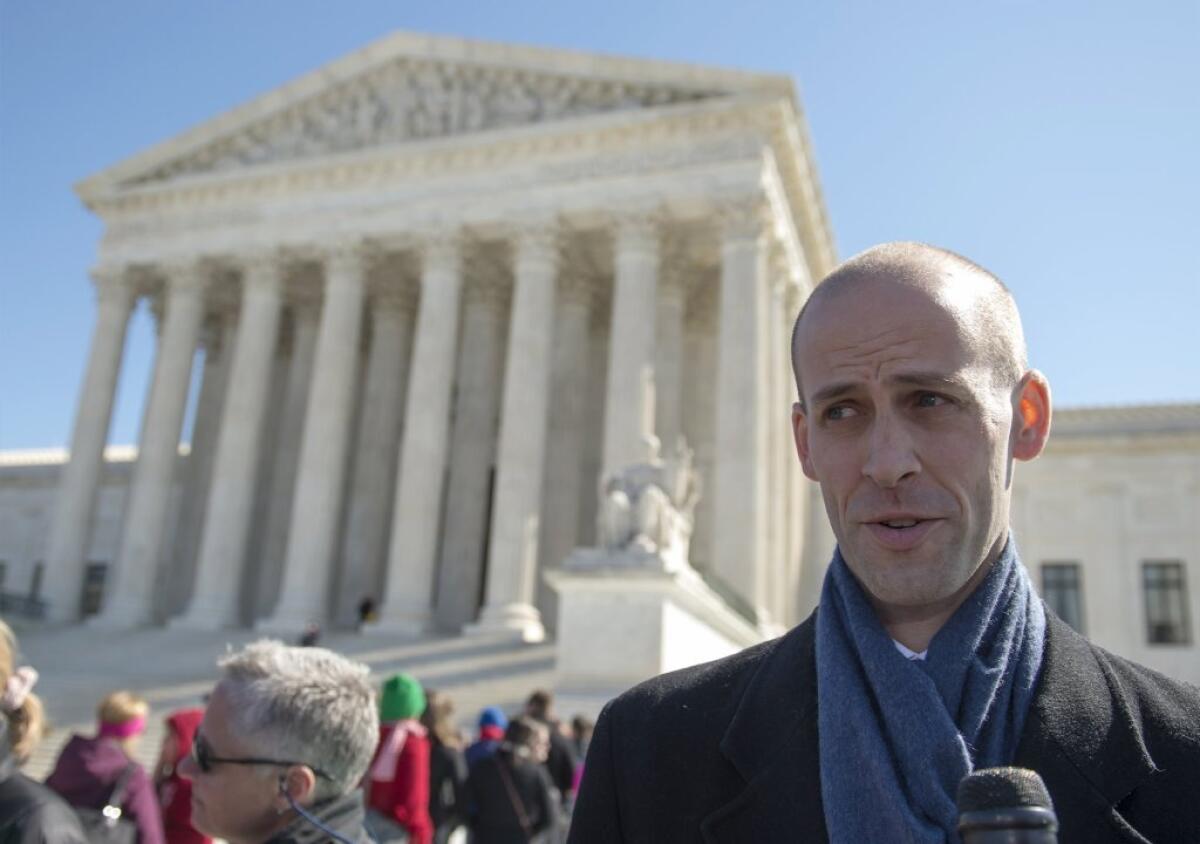Opinion: Texas rejects the Confederate flag -- or does it?

At the Supreme Court on Monday, the state of Texas argued that it engaged in government speech when it refused to approve a specialty plate for the Sons of Confederate Veterans. Like similar plates in other states, the plate the veterans group sought would have featured the group’s logo, which includes the Confederate battle flag.
The outcome is likely to turn on whether messages on licenses plates are indeed government speech — in which case Texas is free to control the message — or rather the speech of the drivers who request a specialty plate. A lower court that ruled in favor of the Sons of Confederate Veterans took the latter view, concluding that “a reasonable observer would know that a specialty license plate is the speech of the individual driving the car.”
But if the government was speaking negatively about the Confederate flag with its denial of the license plate, it has a forked tongue.
Presumably the state denied the request for a plate featuring the Confederate flag because it agreed with protesters who suggested that it was emblem of white supremacy and not, as the Sons of Confederate Veterans argued, a tribute to the sacrifice of Confederate soldiers.
But if that’s the state’s view, how does one explain the fact that, in other contexts, Texas seems to venerate both the Confederate cause and those who fought for it?
This is from the brief filed by the Sons of Confederate Veterans with the Supreme Court:
“Jan. 19 is an official Texas holiday known as Confederate Heroes Day. Texas used to celebrate both Robert E. Lee’s birthday and Jefferson Davis’ birthday, but the holidays were combined into one ‘Confederate Heroes Day’ in 1973 by legislation. On this day, it is not unusual to find people dressed in Confederate period attire near the steps of the Texas Capitol. In addition, there are three permanent monuments to Confederate soldiers on the Capitol grounds: the Confederate Soldiers monument; the Terry’s Texas Rangers monument; and the Hood’s Brigade monument. Inside the Capitol building, on the floor under the rotunda, is an emblem symbolizing Texas’s role in the Confederacy. At the visitors’ gift shop in the Capitol, visitors can purchase miniature Confederate flags, posters with the same Confederate flag, and even replica Confederate currency.”
And here’s the kicker:
“When the state has spoken at all about Confederate soldiers or the Confederacy, it has expressed the same message as Texas SCV — it has honored the Confederate soldiers and commemorated Texas’ role in the Confederacy. In this context, the Department of Motor Vehicles Board’s argument that the State can reject the Texas SCV plate because Texas SCV’s message is offensive is ludicrous.”
Ludicrous, though not necessarily fatal to the state’s argument that (in the persona of Department of Motor Vehicles Board) it was taking a stand against the Confederate flag when it came to the approval of license plates. Maybe Texas can find refuge in a quotation from Walt Whitman: “Do I contradict myself? Very well then I contradict myself. (I am large, I contain multitudes).”
But whatever the outcome of this case, Texans have a right to ask: If the state really considers the Confederate flag a hateful symbol, why is it selling copies of it to tourists?
Follow Michael McGough on Twitter @MichaelMcGough3
More to Read
A cure for the common opinion
Get thought-provoking perspectives with our weekly newsletter.
You may occasionally receive promotional content from the Los Angeles Times.











